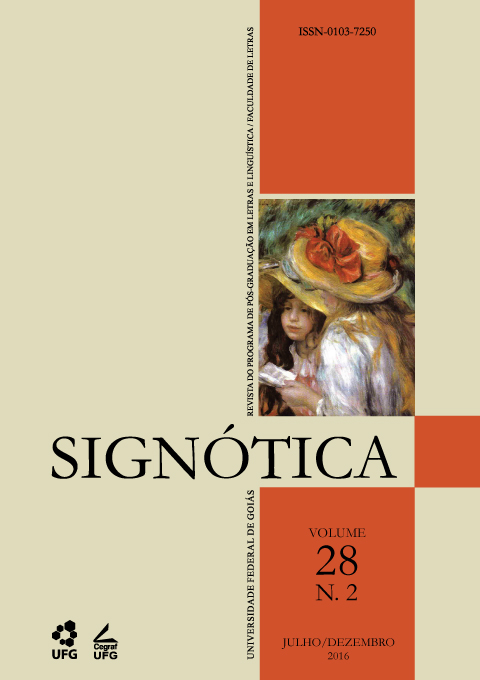Ecolingüística, Lingüística Ecosistémica y Análisis del Discurso Ecológico (ADE)
DOI:
https://doi.org/10.5216/sig.v28i2.35532Palabras clave:
Ecolingüística, Lingüística Ecossistémica, ADE, Armonía.Resumen
El paradigma ecológico ya ha sido seguido por representantes de prácticamente todas las ciencias sociales. Por eso, el propósito de este ensayo es mostrar cómo se ha aplicado en el estudio de los fenómenos lingüísticos, bajo el nombre de Ecolingüística. Comenzamos presentando una visión general de las iniciativas en ese sentido. A continuación, presentamos en relativo detalle la versión de la joven asignatura llamada Lingüística Ecosistémica, cuyo nombre se debe al hecho de que parte de la visión ecológica del mundo, especificada no sólo en la Ecología Biológica, sino también en la Ecología Social y en la Ecología Filosófica, como la Ecología Profunda. El texto se completa con una exposición de la, aún más joven, Análisis del Discurso Ecológica (ADE) que, a diferencia del análisis del discurso tradicional, enfatiza la vida (de todo tipo) y la lucha contra todo lo que pueda traer sufrimiento a los seres vivos. Si las ideologías son inevitables, la ADE apoya la ecoideologia, no las ideologías políticas con sus relaciones de poder. Ella no ignora esas ideologías, pero no las toma como el aspecto más importante. En lugar del conflicto implícito en ellas, la ADE enfatiza la armonía.Descargas
Los datos de descargas todavía no están disponibles.
Publicado
2016-11-23
Cómo citar
COUTO, Elza Kioko Nakayama Nenoki do; COUTO, Hildo Honório do. Ecolingüística, Lingüística Ecosistémica y Análisis del Discurso Ecológico (ADE). Signótica, Goiânia, v. 28, n. 2, p. 381–404, 2016. DOI: 10.5216/sig.v28i2.35532. Disponível em: https://revistas.ufg.br/sig/article/view/35532. Acesso em: 15 feb. 2026.
Número
Sección
Artigo
Licencia
Autoras (s) autorizan a Signótica a publicar artículo, si es aceptado, firmando su contribución como original y no sometida a otra editorial para publicación. En caso de aceptación y publicación, artículos de Signo tienen licencia Creative Comons BY-NC-ND (Asignación + NoComercial + SemDerivaciones)






1.png)





